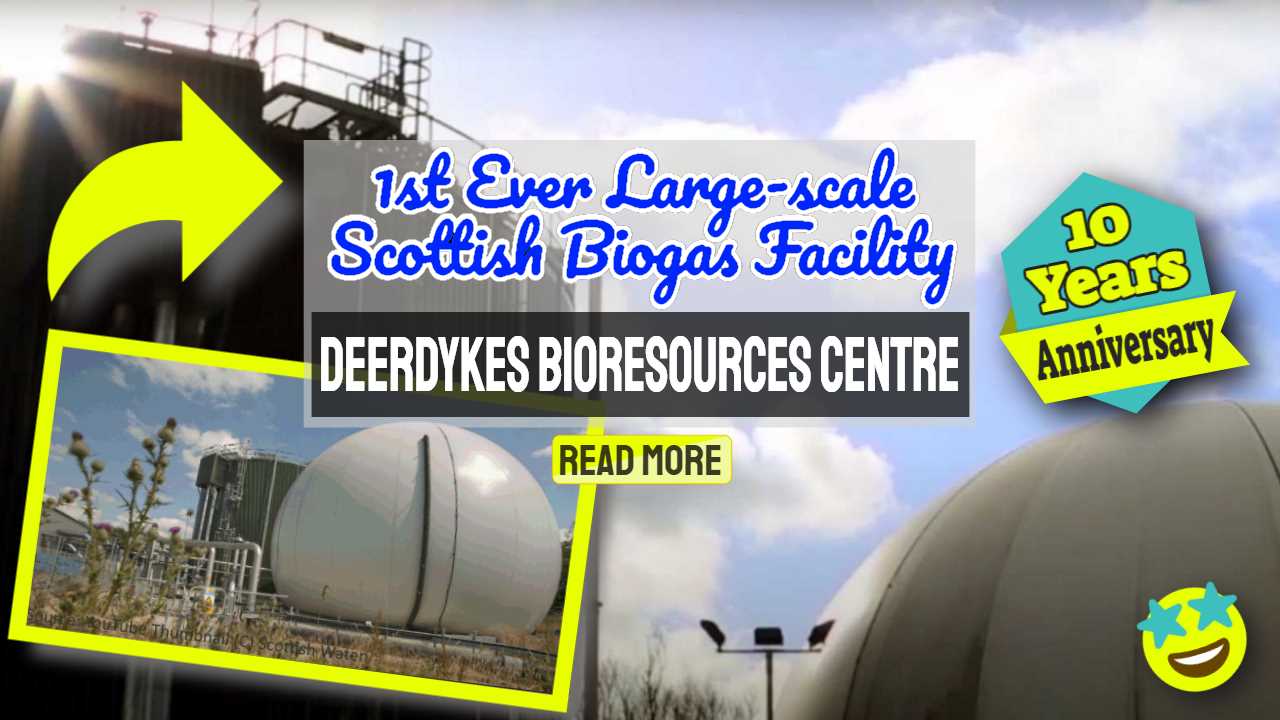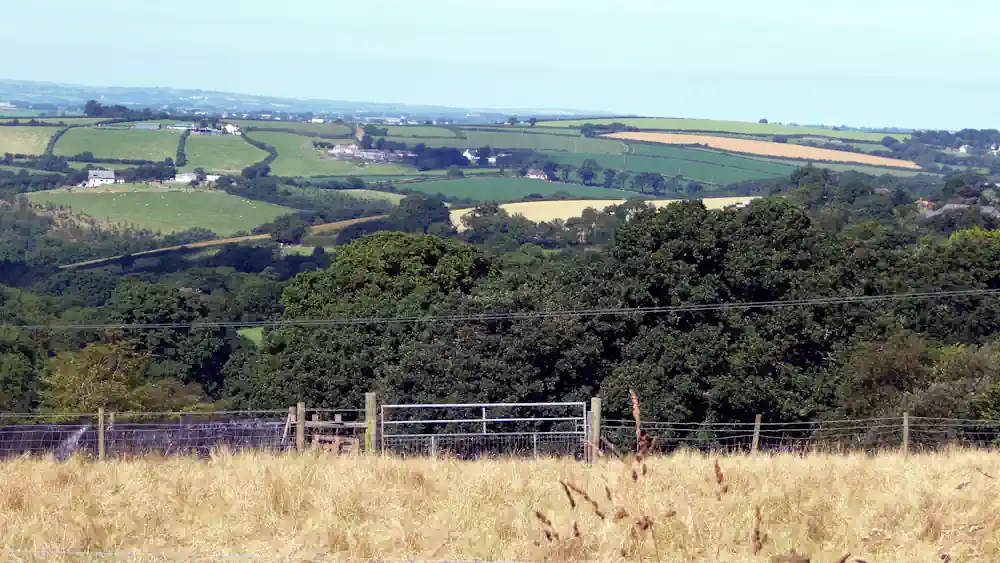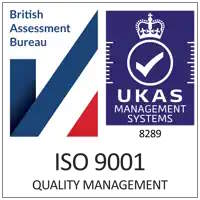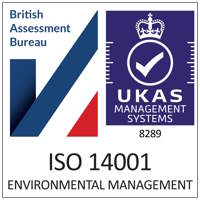It is now over a decade since the opening of the first facility for Food Waste Recycling in Scotland at Deerdykes Bioresources Centre near Cumbernauld in North Lanarkshire.
The 10th anniversary passed in September 2020 for the first-ever large-scale biogas facility in the nation. This news was of special interest to Phoenix’s Managing Director, Jonty Olufsen.
Jonty undertook the role of Project Manager and key advisor to the Employer for the development of the Scottish Water Horizons Waste Treatment Facilities (now known as the Deerdykes Bioresources Centre).
Jonty was intimately involved in the project, as the appointed consultant working for Scottish Water Horizons.
This involved managing the procurement process, detailed design, construction and commissioning stages of this facility, which included developing the design and environmental risk assessments with the Contractor, HAZOP analysis and development of the risk register for the project.
It is always rewarding to receive news of previous projects in which Phoenix staff have been involved. Especially so, in this ground-breaking example, where the facilities have been updated and continue to be a real asset.
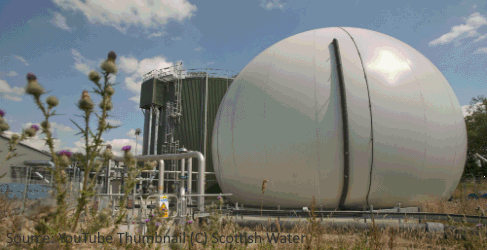
To provide further information on the Deerdykes biogas plant we have reproduced the Scottish Water “Food Waste Recycling in Scotland” article about this project below, with their permission:
Scottish Water Article (17 September 2020) Starts:
Milestone Anniversary For North Lanarkshire Food Waste Plant
And it’s a ten for Deerdykes! Scotland’s first-ever large-scale food waste recycling facility celebrates its tenth anniversary this Scottish Climate Week (September 2020).
In a decade, Scottish Water Horizons’ Deerdykes Bioresources Centre near Cumbernauld in North Lanarkshire has processed over 155,000 tonnes of food waste.
The facility has diverted this waste from landfill, where it would produce methane, a harmful greenhouse gas that is many times worse for the environment than carbon dioxide. By transforming it into renewable sources of energy, we’re helping to fight climate change and protect the environment.
Watch the Scottish Water short film about the facility below:
Operations at Deerdykes have saved 96,695m3 of carbon and generated 38 GWh of green electricity – that’s the equivalent of powering over 10,000 average UK homes.
“Food waste reduction is critical in the fight against climate change and we have set an ambitious target, to reduce overall food waste by 33% in Scotland by 2025. In reducing our impact on the planet, this is an area where all citizens and organisations can make a difference.”
Roseanna Cunningham
Secretary for the Environment
Food Waste Recycling in Scotland
The plant uses modern anaerobic digestion technology to convert food waste into renewable energy. Food waste is broken down during a biological process in sealed, oxygen-depleted tanks to produce energy-rich biogas. This biogas is then converted into electricity as well as a natural fertiliser for use in agricultural land spreading.
This biogas fuels two combined heat and power (CHP) engines, with a total output of 1.5 megawatts (MW) of electricity. The electricity powers the on-site offices and the plant itself, with any excess being fed into the national grid.
Colin Lindsay, Operations Manager at Scottish Water Horizons, said:
“Celebrating the 10th anniversary of our recycling facility during Scottish Climate Week couldn’t be more appropriate. Our plant at Deerdykes has achieved a lot in a decade, contributing greatly to Scotland’s renewables and its target of becoming a net-zero society.”
“Diverting food waste from landfill and transforming it into valuable new products also helps boost our customers’ environmental credentials as they strive to become more sustainable and reduce their environmental impact. We will continue to build on the plant’s success and work closely with our partners to maximise opportunities and efficiencies.”
Around one million tonnes of food is thrown away in Scotland each year. A number of local authorities across west-central Scotland currently transport waste to Deerdykes. It comes from Glasgow City Council, Inverclyde Council, East Dunbartonshire Council and West Dunbartonshire Council areas, along with waste from many food producers and businesses.
Iain Gulland, chief executive of Zero Waste Scotland, said:
“We must cut down what we waste and send to landfill if we are to reduce our impact on the planet. Deerdykes has proven to be a valuable facility by protecting us from the worst impact of food waste and transforming its potential into the energy that powers our homes.”
Earlier this Scottish Climate Week, we published a trailblazing Net Zero Emission Routemap which sets out how we will achieve net-zero emissions by 2040 and beyond, and make a greater contribution to Scotland’s overall emissions ambition.
Secretary for the Environment Roseanna Cunningham said:
“It is fitting that the 10th anniversary of the Deerdykes Food Waste Recycling Plant falls within Climate Week. By diverting 155,000 tonnes of waste from landfill and transforming it into renewable sources of energy, it has helped us reduce food waste and protect the environment.”
“The plant will of course form part of Scottish Water’s wider plans to reach net zero emissions by 2040. The contribution of these low carbon technologies and nature based solutions are invaluable if we are going to build a green economy to enable Scotland to meet its national net zero target by 2045.”
This article was originally published on the Scottish Water Website here.
Scottish Water Article Ends

